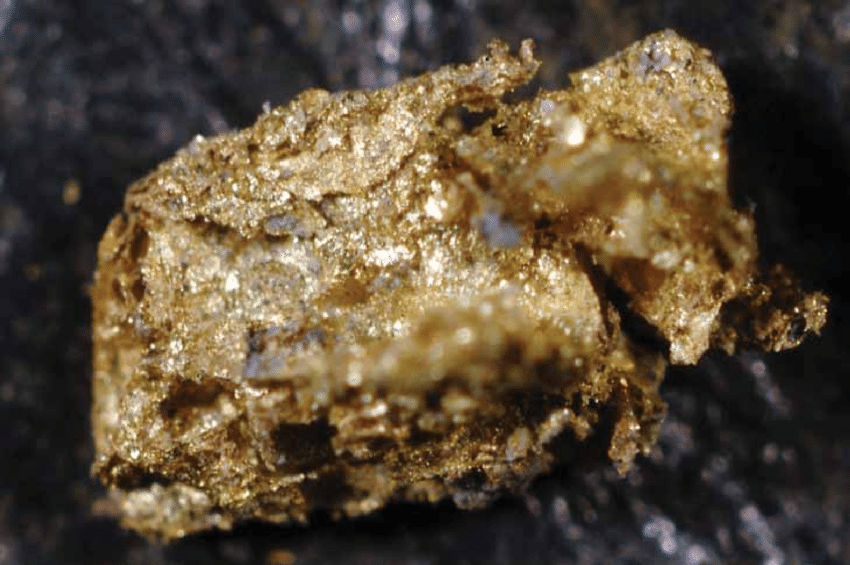
ASUNCIÓN, PARAGUAY – The potential discovery of a gold vein in the Caapucú district of Paraguarí Department, Paraguay, has sent significant ripples through the local community, sparking widespread speculation about the economic benefits such a find could bring. If a gold vein is indeed confirmed on private property, would the landowner reap the economic rewards? Unfortunately, Paraguayan law takes a clear stance on this, making personal "windfall" dreams unlikely to materialize.
Gold Vein Discovery: Anticipated Massive Profits, But…
The gold vein identified in Caapucú is reportedly capable of generating millions of dollars in annual revenue. Currently, the only operational gold mining project in Paraguay is the Latin American Minerals (Lampa) company's mine in Guairá Department. Mineral extraction companies typically apply for mining permits after extensive exploration and financial analysis. One of their key considerations is ensuring that the cost of extraction does not exceed the market value of the precious metal.
Furthermore, the gold vein certification process involves environmental analysis and complex administrative procedures, which, as Mauricio Bejarano, Undersecretary of Mines and Energy, mentioned in an interview with ÚH, can take up to 10 years. These intricate and lengthy procedures highlight the practical difficulties of developing new gold mines.
Constitutional Principle: Nationalization of Underground Resources
With the possibility of a new gold mine development in Paraguay, many are wondering what happens if such minerals are discovered on their land. Could a new millionaire emerge?
Undersecretary Bejarano emphasized that the Paraguayan Constitution explicitly states that underground resources belong to the Paraguayan state. Article 13 of the 1992 Paraguayan Constitution stipulates that the state holds sovereignty over its territory, including the subsoil. Similarly, Article 77 dictates that the state has dominion over hydrocarbons and solid, liquid, and gaseous minerals found in their natural state within the Republic's territory.
Bejarano explained that the "Paraguayan state grants (concession) the right to extract these resources to companies that meet the legal, technical, financial, and environmental conditions, and receives appropriate royalties in return." This means that even if gold is found on private property, ownership remains with the state, which then selects a company to develop these resources and generate revenue.
Direct Benefits for Landowners?
So, do landowners whose land contains mineral deposits receive no direct benefits? Undersecretary Bejarano stated that there are no direct benefits for landowners where minerals are discovered. He clarified, "What we can surmise is that other amenities, such as road improvements and well installations, will be put in place for mining, and land leases are likely to be agreed upon between the parties." This implies that landowners can only expect indirect benefits from mine development, such as infrastructure improvements or land lease income. The direct profits from extraction go entirely to the state and the mining company.
Paraguay's Gold Export Status and the Caapucú Gold Discovery Controversy
Last year, Paraguay exported 600 kilograms of gold, with the United States as the primary destination. These precious metals brought in 2 billion guaraníes (approximately $270,000 USD) in royalties for the state. This demonstrates that Paraguay earns significant national revenue through gold exports.
In the Caapucú region, a press conference was held, causing a major stir, where it was announced that gold had been discovered during drilling for water. Mayor Gustavo Penayo claimed that a significant amount of gold had been found, confirmed by research commissioned by the municipality from the National Institute of Technology, Standardization and Metrology (INTN). However, this announcement suggests that many hurdles remain before it can lead to an official mining project. Beyond the mere presence of gold, economic viability, environmental impact, and above all, legal procedures must be followed for full-scale development.
This incident could trigger discussions within Paraguay about resource nationalism, which refers to movements aimed at strengthening state control over natural resources to maximize benefits for the populace. The Paraguayan Constitution's nationalization of underground resources reflects such a resource nationalist perspective.
The recent Caapucú gold discovery controversy serves as a reminder of Paraguay's mineral resource development potential, along with its legal, environmental, and economic complexities. Contrary to the personal expectations of landowners, Paraguay's mineral resources will be developed strictly under state control, and the profits will revert to state coffers.
[Copyright (c) Global Economic Times. All Rights Reserved.]




























